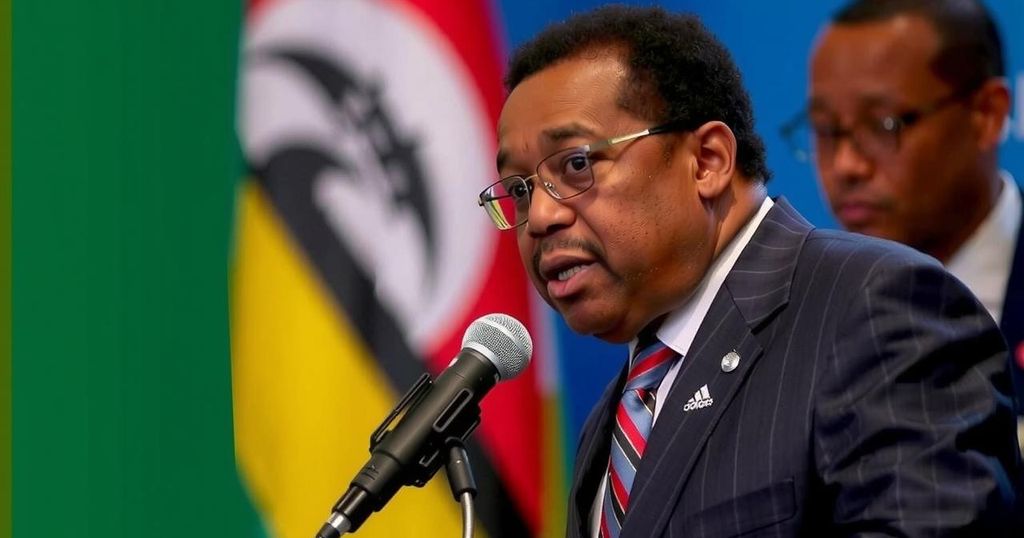Disputed Victory: Daniel Chapo Emerges as President of Mozambique
Daniel Chapo, candidate of the ruling Frelimo party, has been declared the winner of Mozambique’s presidential election, obtaining nearly 71 percent of the vote amidst allegations of electoral fraud and significant protests. The results come at a time of increased tension due to ongoing conflict in the Cabo Delgado region and a deepening divide between the wealthy and the impoverished citizens of Mozambique.
Mozambique’s presidential election concluded with the announcement of Daniel Chapo as the victor. Representing the Frelimo party, which has held power for nearly half a century, Mr. Chapo won approximately 71 percent of the votes cast during the election held on October 9. His victory replaces Filipe Nyusi, who reached his term limit after serving two consecutive five-year terms. However, the election has been overshadowed by significant tension and allegations of electoral fraud. Protests erupted in the capital city, Maputo, resulting in clashes between police and demonstrators. Protesters accused the Frelimo party of manipulating the electoral process and alleged involvement in the shooting deaths of two supporters from Mr. Chapo’s main rival’s camp. Although these claims were made, Frelimo has denied any wrongdoing and expressed confidence in the legitimacy of the election results. Ludmila Maguni, a spokeswoman for the party, asserted, “Frelimo is confident that the results reflect the will of the people.” This electoral cycle underscores the deep divisions in Mozambique, especially against the backdrop of a lengthy insurgency in the Cabo Delgado region, where Islamist militants have operated. The ongoing conflict has exacerbated the disparities between the affluent, who benefit from the country’s abundant natural resources, and the many citizens facing poverty and high unemployment.
Mozambique has been governed by the Frelimo party since gaining independence from Portugal in 1975. The recent election reflects not only a critical political moment but also societal tensions that have evolved over decades. The country is currently facing an insurgency in the northern region of Cabo Delgado, which has raised concerns about security and governance. These factors have contributed to widespread disillusionment among the populace, particularly regarding the equitable distribution of wealth generated from Mozambique’s rich natural resources such as natural gas and precious gems. The political climate has become particularly volatile as accusations of electoral misconduct point to deeper issues within the nation’s democratic processes.
The presidential election in Mozambique resulted in a controversial victory for Daniel Chapo of the Frelimo party amid a backdrop of violence and allegations of fraud. The event highlights ongoing political instability within the country and the significant divides that exist between those who benefit from its natural wealth and those who grapple with poverty and insecurity. As Mozambique navigates these challenges, Frelimo’s ability to maintain its grip on power will likely face increasing scrutiny and pressure from the populace.
Original Source: www.nytimes.com




Post Comment